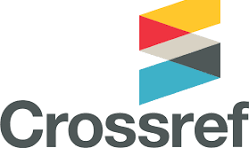Unpacking the Social and Health Effects of Covid-19 Pandemic on Healthcare Workers’ Performance in Selected Public Hospitals in Lagos, Nigeria
DOI:
https://doi.org/10.63516/amss/02.01/006Keywords:
Covid-19 pandemic, health care workers, pattern of work, performance, social and health status, well-beingAbstract
Background: The rapid spread of Covid-19 necessitated all businesses to abruptly shut down overnight except for health workers who battled the situation and salvaged its increase. How this era shaped the performance and mental well-being of healthcare workers requires an examination, hence this study. Thus, this study examined the social and health effects of Covid-19 pandemic on the performance of healthcare workers in selected public hospitals in Lagos, Nigeria.
Methods: The study was hinged on the dethnomethodical theory and health behaviour theory. The study was cross-sectional with a sample size of 155 respondents obtained via quantitative data gathering process.
Results: Findings revealed that Covid-19 significantly affected the social and health status of healthcare workers with 0.767, p=.000. Evidence further revealed that Covid-19 equivalently contributed to the social well-being of health workers with 0.879, p=.000. In addition, finding indicated that a positive effect of Covid-19 was found on the work pattern of health workers with 0.748, p=.000).
Conclusion: The study concluded that COVID-19 affected the social health and well-being of healthcare workers as well as their work pattern; and for a developing country like Nigeria, lack of awareness played a principal role which further induced mental stress. Therefore, managements of public hospitals should provide health workers with continuous trainings to combat unforeseen circumstances like the Covid-19 pandemic.
References
1. Allen, l .O, Gabriel-Kona, A.S, Gontor, P, Okafor, I.M & Olanipekun, L.O. (2022). Covid19 and Women in Nigeria: Evidence from Women in selected Metropolis in Lagos State. ESCAE Journal of Management and Security Studies, 2 (1), 30-49.
2. Akindele, F.P (2020). A simple planning problem for Covid-19 lockdown. Covid Econ. 14, 1–33. doi: 10.3386/w26981
3. Algeri, D., Gabri, S., and Mazzucchelli, L. (2019). Consulenza psicologica online. Esperienze pratiche, linee guida e ambiti di intervento. Firenze: Giunti Editore.
4. Anderson, R. M., Heesterbeek, H., Klinkenberg, D., & Hollingsworth, T. D. (2020). How will country-based mitigation measures influence the course of the COVID-19 epidemic? The Lancet, 395(10228), 931–934. https://doi .org/10.1016/S0140-6736(20)30567-5.
5. APS (2020). Psychologists welcome health fund telehealth support of Australians’ mental health during COVID-19 outbreak. Australia: Tratto da Australian Psuchology Society.
6. Bakker, A. B., & Demerouti, E. (2017). Job demands–resources theory: Taking stock and looking forward. Journal of Occupational Health Psychology, 22(3), 273–285. https://doi.org/10.1037/ocp0000056.
7. Bandura A. Health promotion by social cognitive means. Health Educ Behav. 2004;31(2):143–157.
8. Bandura A. Social Foundations of Thought and Action: A Social Cognitive Theory. Englewood Cliffs: Prentice-Hall; 1986.
9. Békés, V., and Aafjes-van Doorn, K. (2020). Psychotherapists’ attitudes toward online therapy during the COVID-19 pandemic. J. Psychother. Integr. 30, 238–247. doi: 10.1037/int0000214
10. Brooks, S., Webster, R. S., Woodland, L., Wessely, S., Greenberg, N., (2020). The psychological impact of quarantine and how to reduce it: rapid review of the evidence. Lancet 395:10227. doi: 10.1016/S0140-6736(20)30460-8
11. Centers for Disease Control and Prevention (2020). Psychological interventions for people affected by the COVID-19 epidemic. Lancet. Psych. 7, 300–302. doi: 10.1016/s2215-0366(20)30073-0
12. Dasaolu, N. D. (2020). Managing mental health challenges faced by healthcare workers during covid-19 pandemic. BMJ 368:m1211. doi: 10.1136/bmj.m1211.
13. Durkheim, E. (1922). Education et Sociologie. Milano: Ledizioni.
14. Franks, C., P. (2010). Severe acute respiratory syndrome (SARS) in Hong Kong in 2003: stress and psychological impact among frontline healthcare workers. Psychol. Med. 34, 1197–1204. doi: 10.1017/s0033291704002247.
15. Garcia-Castrillo, L., Petrino, R., and Leach, R. (2020). European Society for Emergency Medicine position paper on emergency medical systems’ response to COVID-19. Eur. J. Emerg. Med. 27, 174–1777. doi: 10.1097/mej.0000000000000701.
16. Halbesleben, J. R. B. (2006). Sources of social support and burnout: Ameta-analytic test of the conservation of resources model. Journal of Applied Psychology, 91(5), 1134–1145. https://doi.org/10.1037/0021-9010.91.5.1134
17. Hobfoll, S. E. (2010). Conservation of resources theory: Its implication for stress, health, and resilience. In S. Folkman (Ed.), TheOxfordHandbook of stress, health, and coping (pp. 127–147). Oxford University Press. https://doi.org/10.1093/oxfordhb/9780195375343.013.0007
18. Lawal, T.P. (2006). When Is Quarantine a Useful Control Strategy for Emerging Infectious Diseases? Am. J. Epidemiol. 163, 479–485. doi: 10.1093/aje/kwj056.
19. Liang, Y., Chen, M., Zheng, X., and Liu, J. (2020). Screening for Chinese medical staff mental health by SDS and SAS during the outbreak of COVID-19. J. Psychosom. Res. 133, 1101–1102. doi: 10.1016/j.jpsychores.2020.110102
20. Miles, S. (2020). Kaci Hickox: Public Health and the Politics of Fear. Tratto da Bioethics. Available online at: http://www.bioethics.net/2014/11/kaci-hickox-public-health-and-the-politics-of-fear/ (accessed March 2, 2021).
21. Opatha, N. P. (2020). Associations between night work and anxiety, depression, insomnia, sleepiness and fatigue in a sample of Norwegian nurses. PLoS One 2020: e70228. doi: 10.1371/journal.pone.0070228
22. Ozili P.K. (2020). Covid-19 pandemic and economic crisis: The Nigerian experience and structural causes, Munich Personal RePEc Archive. 2020;1-19.
23. Passeti, D. (2020). How Healthcare Personnel Can Take Care of Themselves. US: HBR.
24. Perrin, P., Rybarczyk, B., Pierce, B., Jones, H., Shaffer, C., and Islam, L. (2020). Rapid telepsychology deployment during the COVID-19 pandemic: A special issue commentary and lessons from primary care psychology training. Clin. Psychol. 76, 1173–1185. doi: 10.1002/jclp.22969
25. Rudolph, C. W., Allan, B., Clark, M., Hertel, G., Hirschi, A., Kunze, F., Shockley, K., Shoss, M., Sonnentag, S., & Zacher, H. (2020). Pandemics: Implications for research and practice in industrial and organizational psychology. Industrial and Organizational Psychology: Perspectives on Science and Practice. https://doi.org/10.31234/osf.io/k8us2
26. Sonnentag, S. (2015). Dynamics of well-being. Annual Review of Organizational Psychology and Organizational Behavior, 2, 261–293. https://doi.org/10.1146/annurev-orgpsych- 032414-111347.
27. Spoorthy, M. S., Pratapa, S. K., and Mahant, S. (2020). Mental health problems faced by healthcare workers due to the COVID-19 pandemic–A review. Asian J. Psych. 51:1876. doi: 10.1016/j.ajp.2020.102119
28. Stoll, K. (2020). Grief and COVID-19: Mourning our bygonelives. Washington: American Psychological Association.
29. Treccani (2020). Einfuhlung. Tratto da Treccani. Available online at: http://www.treccani.it/enciclopedia/einfuhlung/ (accessed March 10, 2020).
30. Ufodiama, K.P (2020). Teaching Medical Students Skills for Effective Communication with Patients Who Have Communication Disorders. Am. J. Spe. Lang. Pathol. 28, 155–164. doi: 10.1044/2018_ajslp-18-0130.
31. Van Bavel, J. J., Baicker, K., Boggio, P. S., Capraro, V., Cichocka, A., Cikara, M., […] & Willer, R. (2020). Using social and behavioural science to support COVID-19 pandemic response. Nature Human Behaviour, 4, 460–471. https://doi.org/10.1038/s41562-020-0884-z.
32. Wells, S. W., Moreno, L., Butler, E., and Glassman, L. (2015). “The informed consent process for therapeutic communication in clinical videoconferencing,” in Clinical videoconferencing in telehealth: Program development and practice, eds P. W. Tuerk and P. Shore (Berlin: Springer Inernational Publishing), 133–166. doi: 10.1007/978-3-319-08765-8_7
33. World Bank (2020). Psychological impact of COVID-19 quarantine measures in northeastern Italy on mothers in the immediate postpartum period. Gynechol. Obst. 150, 184–188. doi: 10.1002/ijgo.13249
34. World Health Organization (2019). Emergency Global Supply Chain System (COVID-19) Catalogue. Available online at: https://www.who.int/publications/i/item/emergency-global-supply-chain-system-(covid-19)-catalogue (accessed March 10, 2021).
35. World Health Organization (2020, June 03). Coronavirus disease (COVID-19) pandemic. Retrieved from: https://www.who.int/emergencies/diseases/novel-coronavirus-2019.
36. Worldmeters.info, (2020). The effects of social support on sleep quality of medical staff treating patients with coronavirus disease 2019 (COVID-19) in January and February 2020 in China. Med. Sci. Monit. 26:e923549. doi: 10.12659/MSM.923549
37. Zhou, X., Snoswell, C. L., and Harding, L. E. (2020). The Role of Telehealth in Reducing the Mental Health Burden from COVID-19. Telemed. E Health. 26, 377–379. doi: 10.1089/tmj.2020.0068.
Downloads
Published
Issue
Section
License
Copyright (c) 2025 Archives of Management and Social Sciences

This work is licensed under a Creative Commons Attribution 4.0 International License.




